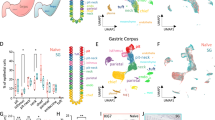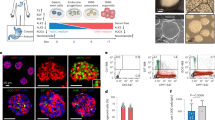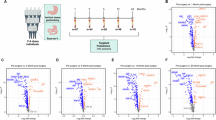Abstract
Summary: Basal and pentagastrin-stimulated gastric acid secretion was measured in 26 healthy newborn infants on the 1st and 2nd days of life. Basal acid outputs (BAO) on day 1 (0.378 mEq/hr) and day 2 (0.388 mEq/hr) were similar and not significantly different from the maximal acid outputs (MAO) on day 1 (0.413 mEq/hr) and day 2 (0.452 mEq/hr). When calculated on a mEq/kg/hr basis, BAO on day 1 was 0.110 with an MAO of 0.122. The BAO on day 2 was 0.114 with an MAO of 0.133. Fasting serum gastrin levels obtained before the acid studies on each day were elevated (mean, day 1 = 100 pg/ml; mean, day 2 = 108 pg/ml). These findings suggest that either gastric acid secretion in the newborn is maximal under basal condition or that newborn parietal cells are unresponsive to pentagastrin on day 1 and 2 of life.
Similar content being viewed by others
Log in or create a free account to read this content
Gain free access to this article, as well as selected content from this journal and more on nature.com
or
Author information
Authors and Affiliations
Rights and permissions
About this article
Cite this article
Euler, A., Byrne, W., Meis, P. et al. Basal and Pentagastrin-Stimulated Acid Secretion in Newborn Human Infants. Pediatr Res 13, 36–37 (1979). https://doi.org/10.1203/00006450-197901000-00008
Issue date:
DOI: https://doi.org/10.1203/00006450-197901000-00008
Keywords
This article is cited by
-
Assessment of Age-Related Changes in Pediatric Gastrointestinal Solubility
Pharmaceutical Research (2016)
-
The ontogeny and developmental physiology of gastric acid secretion
Current Gastroenterology Reports (2007)



